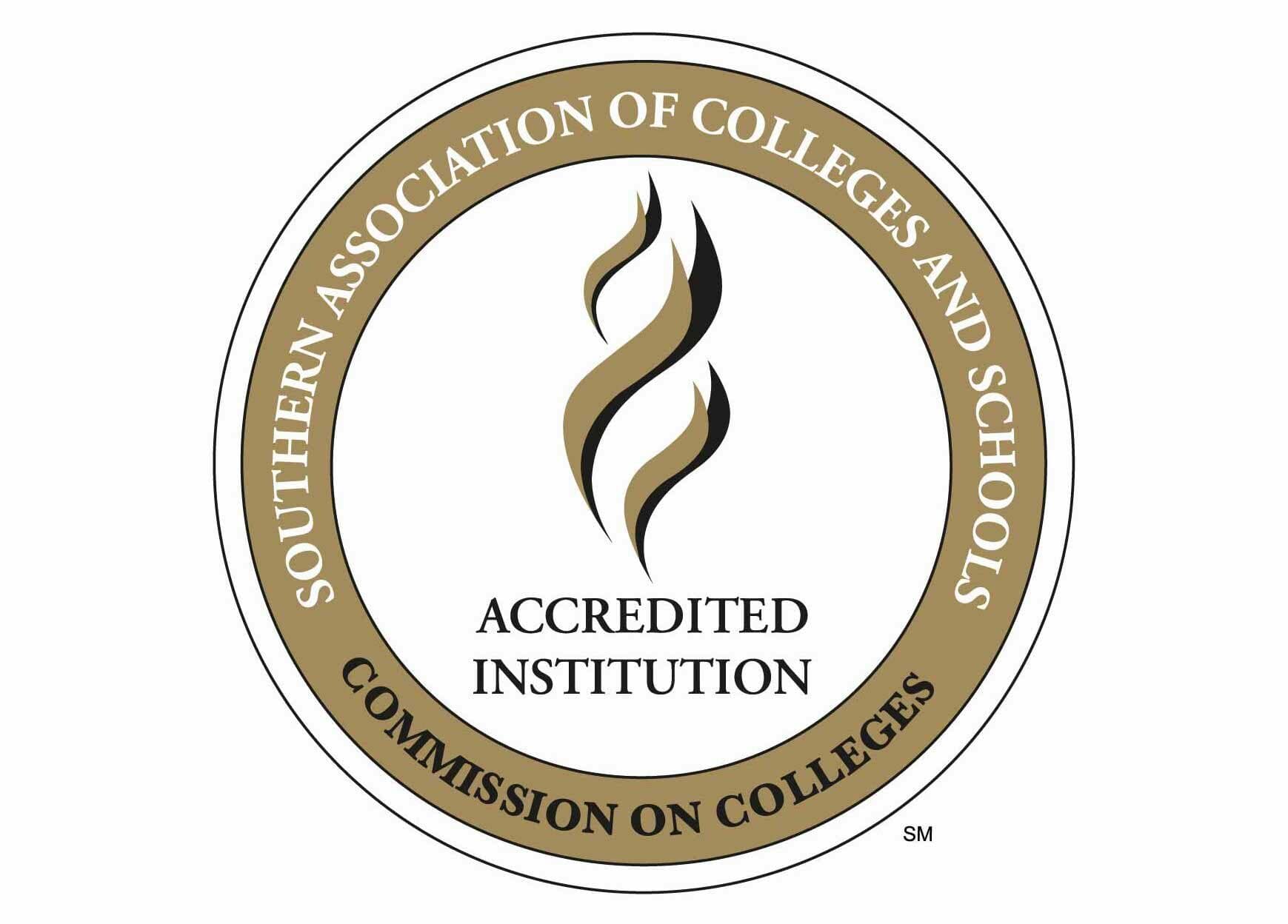Learn More
Discover The Skills to Empower Your Leadership And Transform Professional Practice
In our online Doctor of Education in Educational Leadership program, you’ll gain expertise in constructing crucial communication networks and fostering collaborative alliances to enhance your school’s strategies and enrich its culture. This flexible program allows you to pursue your doctorate while maintaining your current position. Joining a dynamic cohort of professionals from diverse school districts statewide, you’ll be part of our mission to elevate educational standards through a focus on equity, ethics, and social justice while imparting cutting-edge methodologies for strategically fortifying the foundations of your school or district.
$3,000 Scholarship for Doctor of Education Students
New students will receive a $3,000 scholarship awarded during your first two years in the Ed.D. program. New students that begin classes in our Spring 1 session beginning January 14, 2025 will automatically receive the scholarship.
About the Program

ACU’s online Doctor of Education in Educational Leadership program offers educators the chance to join a community of like-minded professionals aspiring to advance into administrative roles. This degree equips you with the skills to lead your school or district effectively by deepening your understanding of leadership concepts, theories, and strategies, and by integrating new insights into administrative practices tailored for educational contexts. With its diverse array of courses, this program is the perfect choice for those seeking a valuable curriculum at a reputable, Christ-centered institution.
Program Structure
All the Details on Your Degree
Throughout the coursework, you will expand your understanding of how to showcase strategic leadership and innovative problem-solving approaches within K-12 institutions. In the core curriculum courses, you will learn classic and contemporary educational leadership theories while simultaneously weaving other important aspects of leading a K-12 institution including learning instruction and innovation, effective communication as an educational leader, and managing human capital. Diving into the other topics, including the cultural, political and social issues influencing educational leadership, you can expect to design, implement, maintain, and evaluate change initiatives that can be seamlessly integrated into your curriculum or school environment.
Advanced Standing Available
With a Principal or Superintendent Certification, you may be eligible to reduce the cost of your degree by qualifying for “Advanced Standing” to automatically gain up to 15 credit hours toward your Ed.D. – a savings of $12,500. Other financial aid may apply. Please speak with an admissions advisor to learn more.
Required Hours
60 hours total, reduced to 45 hours by granting 15 hours of Advanced Standing to students with a Principal or Superintendent Certification
3-year completion timeframe
Cost: $767/Hour with $400 resource fee per semester
Example Coursework
Effective Communication as an Education Leader
Learning Instruction and Innovation
Schools as Organizations
Organizational Assessment and Evaluation
Upcoming Start Dates
January 14, 2025
March 11, 2025
Common Job Titles
District Administrator
Assistant Principal
Principal
Deputy Superintendent
Superintendent
Curriculum
Embedded Dissertation
Our innovative program features an embedded dissertation model that seamlessly integrates coursework with dissertation milestones. Each course includes a “dissertation journey task,” ensuring you make tangible progress on your dissertation alongside coursework. Beginning your work with a chair early in your second semester, you’ll navigate milestones culminating in a comprehensive Concept Proposal as a prerequisite for LEAD 765. Our program is designed to connect every aspect of your curriculum with intentionality, providing a streamlined path to doctoral achievement. Unlock your potential and advance your career with a program tailored for success with a short three-year completion time.
Concentrations
Focused on making you a changemaker in your school district, this degree is ideal for those looking to advance their careers toward greater competence and professional development via our two distinct concentrations.
Principal Leadership
Designed to meet the needs of competent and intelligent school principals, the Principal Leadership concentration helps you learn how to manage data to improve student learning and learning challenges, understand the importance of reframing learning for specific student populations, know how to create effective learning environments, and apply research-based practices for future protocols and procedures.
 School Superintendent
School Superintendent
Designed to help launch aspiring superintendents and administrative leaders, the School Superintendent concentration helps you better understand school finances and funding for educational facilities, be exposed to the current politics within the state’s educational sector, learn how to become a district instructional leader, and grow in your current comprehension of education theories and practices.
Meet the Program Director

Dr. Darlene Breaux, Doctor of Education in Educational Leadership
Dr. Darlene Breaux earned her B.A. in psychology from Texas Southern University, an M.S. in educational leadership from the University of Houston–Clear Lake where she graduated with high honors, and completed her doctorate in organizational leadership from Abilene Christian University in 2020 where she also received a university certification in mediation.
Her research centered on Teachers’ Perceptions Regarding Dyslexia Training for Addressing the Social-Emotional Needs of Children with Dyslexia. Dr. Breaux received the Dissertation of the Year award from the Texas Council of Professors of Educational Administration. She is known for her passion for educational policy and advocacy and has had the opportunity to influence the legislative agenda at the state and federal levels, earning her the honor of being named HAABSE, TABSE, and NABSE School Board Member of the Year. Texas School Business magazine named Breaux as a Thought Leader and Innovator in Education. Her published work “What Do You Do When Silence is No Longer Golden” was touted as an “Essential Read” by Psychology Today magazine. Dr. Breaux was recognized as one of Houston’s Top 30 Influential Women and received the 2024 Presidential Lifetime Achievement Award from President Joseph R. Biden.
Dr. Breaux serves on the board of directors for the Texas Association of School Boards (TASB), Gulf Coast Area Association of School Boards (GCAASB), Houston reVision, and is the board president for Alief Independent School District and has earned the distinction of Master Trustee.
Spotlight

ACU and Region 18 Education Services Center Partner to Strengthen Aspiring Educators and Professionals with Advanced Degrees and Exceptional Opportunities
We’re thrilled to announce a new partnership with Region 18 Education Service Center, bringing fully online degree programs and professional development opportunities to high school students, aspiring educators, teachers, and administrators in West Texas. This collaboration aims to create innovative pathways for future and current educators to earn teaching certifications, as well as undergraduate and graduate degrees. ACU is committed to supporting districts and leaders by offering unique opportunities to enhance their skills and passion for career advancement.

ACU and Alief ISD Join Forces
ACU is partnering with Alief ISD to launch innovative online degree programs and professional development pathways tailored for educators in the Houston area. This collaboration is all about growth—helping paraprofessionals become credentialed teachers, supporting current teachers in advancing their careers, and empowering educational leaders. Together, we’re creating new opportunities for educators to excel and make a lasting impact in their communities.

ACU and ESC Region 11 Partner to Empower Future Educators in Greater Fort Worth
ACU is thrilled to partner with Education Service Center Region 11 to launch fully online degree programs and professional development pathways for educators and aspiring teachers in the Greater Fort Worth area. Whether you’re just starting out or looking to take your career to the next level, this partnership is all about empowering you with the tools and opportunities to thrive in education.

ACU Announces New Ed.D. in Educational Leadership
Our new Ed.D. in Educational Leadership program equips aspiring leaders with the skills to drive meaningful change in Texas educational institutions. Led by highly credentialed faculty, students gain hands-on experience and mentorship, preparing them to tackle complex challenges and inspire excellence. With concentrations in principal leadership and school superintendent, the program features an embedded dissertation model for a streamlined, three-year completion. Read more:

ACU Invited To Join The Carnegie Project on the Education Doctorate (CPED) Network
ACU is proud to announce the acceptance of its invitation to join The Carnegie Project on the Education Doctorate (CPED) network! Consisting of over 135 institutional members nationwide, this distinction motivates ACU to continue to develop its competitive, nationally recognized Doctor of Education in Educational Leadership program as well as share, learn and provide constructive feedback in a national dialogue surrounding education.

A Quick Rundown on the National Teacher Shortage
As the national teacher shortage continues to worsen and deepens, it’s critical to understand what’s going on and how to support educators. In this quick rundown of the who, what, when, where, and why, learn more about the shortage crisis and how you can answer the call to become an impactful K-12 educator.

Faculty Spotlight: Dr. Darlene Breaux
From working as a teacher to becoming the director of the Research and Evaluation Institute at the Department of Education for Harris County, Dr. Darlene Breaux has done it all – and now she is the program director for the Ed.D. in Educational Leadership. Leaning into her next vocational calling, Dr. Breaux is excited to see where God will lead her and her students in the coming years.

What is the Difference: Ed.D in Organizational Leadership and Educational Leadership
The demand for Ed.D. programs is surging. Whether you’re interested in becoming a master high school teacher, assistant principal, headmaster, or superintendent, an Ed.D. can give you the skills and strategies to become qualified to apply and be considered for such positions despite your previous background or degree. However, like every student, each Ed.D. degree is different.

According to the Bureau of Labor Statistics, the employment rate of school leaders is predicted to increase by 11.3% within the next few years. With thousands of open positions projected every year across Texas, the need for well-trained and educated school leaders is great with opportunities existing in various types of settings including public and private K-12 institutions, colleges, and universities.

To be considered for admission, students must:
- Complete the online program application accompanied by a non-refundable processing fee.
- Submit official transcripts showing earned bachelor’s and master’s from a regionally accredited college or university or the equivalent.
- Have a cumulative GPA of 3.0 or above, probationary status may be granted.
- Submit a current resume.
- Statement of interest in the Ed.D. in Educational Leadership describing potential research questions and professional career objectives.
- 400-500 word writing sample that clearly communicates beliefs about educational leadership, philosophy of education, why they hold these beliefs, and how they translate those beliefs into practice.
- Students who choose the superintendent concentration must already possess the superintendent or principal certification or the equivalent courses.
Graduation Requirements: Students must earn a 3.0 GPA or higher to meet graduation requirements, including successfully completing all required courses and dissertation hours.

Abilene Christian University is accredited by the Southern Association of Colleges and Schools Commission on Colleges to award associate, baccalaureate, master’s and doctoral degrees. Contact the Commission on Colleges at 1866 Southern Lane, Decatur, Ga. 30033-4097 or call 404-679-4500 for questions about the accreditation of ACU.
Abilene Christian University enjoys a strong national reputation as one of the leading private Christian universities in the west and southwest, indicated by various ratings (such as U.S. News and World Report and other reports).


 School Superintendent
School Superintendent